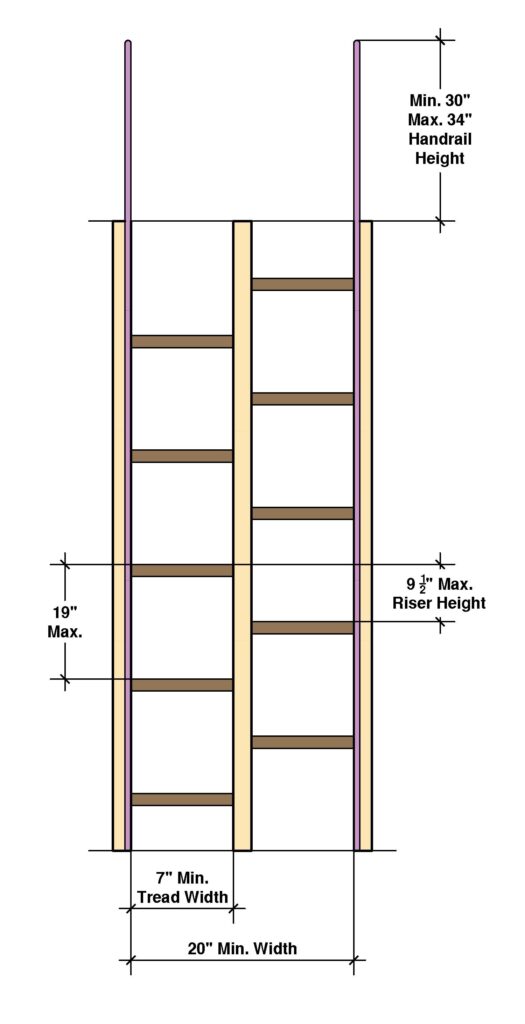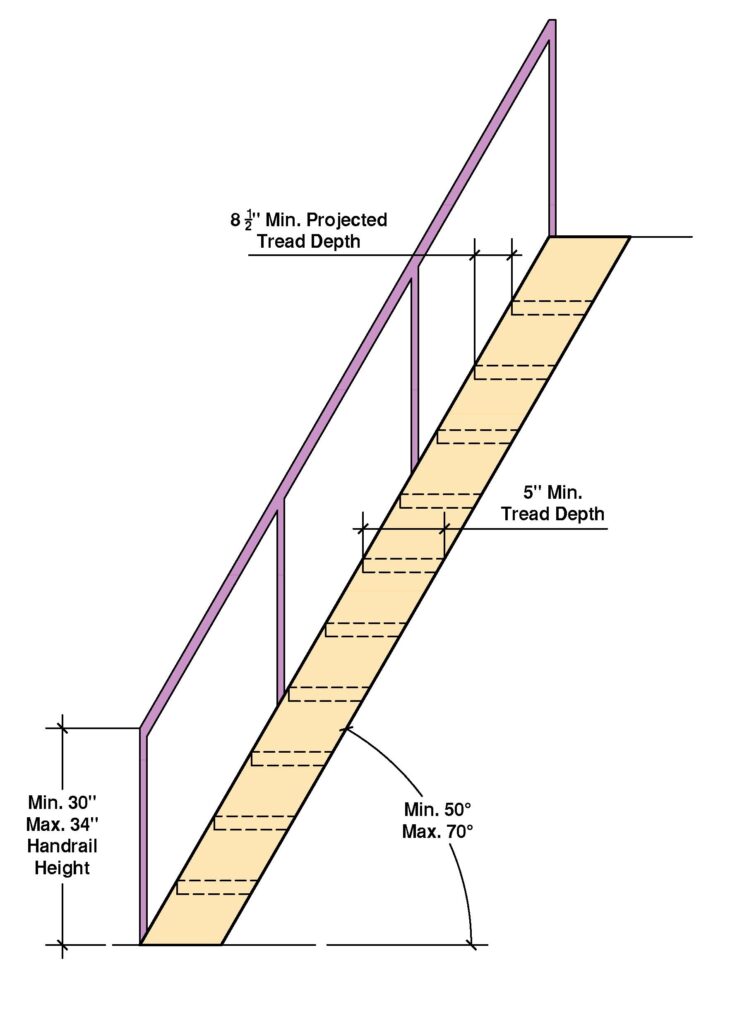An alternating tread device is another type of stair system that the code provides guidance on. However when provided it is very clear that the code does not allow alternating tread devices to be used in-lieu of conventional stairs as a means of egress.
When alternating tread devices are installed within an individual dwelling unit, the International Residential Code (IRC) provides some guidelines as to the width, riser, tread, and handrail requirements.
Although this type of stair system might be difficult to use, it is only allowed where the space it serves is provided with an egress compliant stairway or ramp, or if the space it serves does not require a means of egress.
It is important to note that there is an exception in the code that does allow alternating tread devices to be used as a means of egress only if the space it serves is a loft, mezzanine, or similar area that is 200 gross square feet or less.
However the space must not provide exclusive access to a kitchen or bathroom. Meaning that if the loft, mezzanine, or space contains or provides the only access to a kitchen or bathroom, it cannot be used as a means of egress and another egress compliant stair must be provided.
This exception was added to address small lofts or mezzanines within a tiny house where this would be convenient.
Therefore to understand if alternating tread devices meet the size and clearance requirements of the 2018 International Residential Code (IRC), we need to look at Section R311.7.11.
Alternating Tread Device Width
What is the required width of an alternating tread device?
The clear width at and below the handrails shall be not less than 20 inches.
Alternating tread devices must be at least 20 inches in width where measured at and below the handrails.
Tread Depth for Alternating Tread Devices
What is the minimum depth of an alternating tread device tread?
Alternating tread devices shall have a tread depth of not less than 5 inches, a projected tread depth of not less than 8-1/2 inches, a tread width of not less than 7 inches.
Tread depths are measured horizontally between the vertical planes of the foremost projections of adjacent treads. To best illustrate this, see the images below.

Riser Height for Alternating Tread Devices
What is the maximum height of an alternating tread device riser?
The riser height shall be not more than 9-1/2 inches.
Riser heights are measured vertically between the leading edge of adjacent treads. The angle of ascent that results from the riser height and the tread depth must be between 50 and 70 degrees from the horizontal. To best illustrate this, see the image above and below.
Handrail Height for Alternating Tread Devices
What is the required handrail height for an alternating tread device?
Handrails shall be provided on both sides of ship ladders and shall comply with Section R311.7.8.2 to R311.7.8.6. Handrail height shall be uniform, not less than 30 inches and not more than 34 inches.
For adequate safety to be provided for the user, unlike conventional stairs that only requires a handrail at one side, alternating tread devices require handrails at both sides due to its steepness.
As for the handrail projection, clearance, and grip size, this section refers you to the conventional staircase handrail standards found in Section R311.7.8.2 through R311.7.8.6. To graphically see what this looks like be sure to check out this POST.
When it comes to the height, it differs from conventional stair handrails. The top of the handrail must be located not less than 30 inches and not more than 34 inches when measured vertically above the imaginary line connecting the leading edge of the treads.
To best illustrate this, see the image below.

So this basically sums up the basic code requirements for alternating tread devices within residential dwelling units that are subject to the International Residential Code (IRC).
.
* Reference Source – 2018 International Residential Code – [Buy on Amazon]
.
Related Articles to Read:
